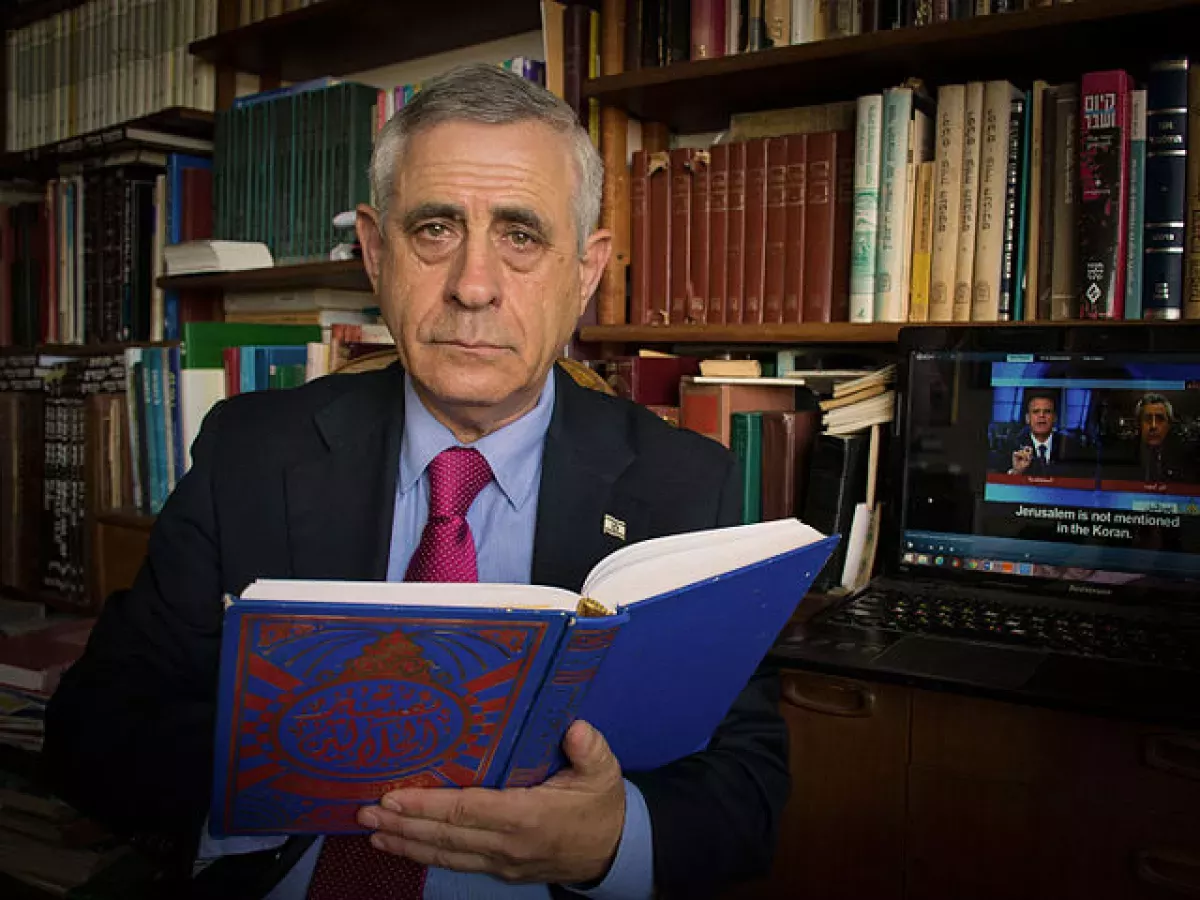Azerbaijan-Israel: An alliance that should not be underestimated Jewish News Syndicate article
The Israeli newspaper Jewish News Syndicate has published an article on Azerbaijani-Israeli relations. Caliber.Az republishes the piece with minor modifications.
Editor's note: the article's author is Mordechai Kedar, a senior research associate at the Begin-Sadat Center for Strategic Studies and an expert on the Muslim Brotherhood and other Islamist groups.

The relationship between Azerbaijan and Israel has become a symbol of cooperation between two nations that do not share a common border, ethnic background or religion, yet work together through mutual respect and friendship. This alliance has been highly beneficial to both Azerbaijani and Israel; it is unique and should not be underestimated.
It all started about 30 years ago with a meeting in New York between then-Israeli Prime Minister Yitzhak Rabin and then-President of Azerbaijan Heydar Aliyev. During this meeting, the two leaders spoke privately, without intermediaries or advisers, discussing what each country needed from the other—Israel needed a stable and reliable source of oil, while Azerbaijan sought Israel’s military defence systems. Since that day, Israel’s alliance with Azerbaijan has become one of its most stable and reliable.
Everyone knows that Israel is the United States’ closest ally in the Middle East. However, not many know that Azerbaijan is Israel’s second closest friend, at least according to Joseph Epstein, a research director at the Endowment for Middle East Truth.
The key difference between Azerbaijan and Israel’s other allies—particularly Israel’s other Western allies—is how Azerbaijan views the Israeli-Palestinian conflict. Almost all Western countries allow this conflict to affect their relationship with Israel, even in cases where Israel is responding to terrorist actions by Palestinians. Just in the last year, we saw Britain, France and even the United States put pressure on Israel due to the Gaza war, a conflict that started after Hamas invaded Israel on October 7, 2023, and brutally murdered 1,200 people, most of them innocent civilians.
Azerbaijan, however, has never allowed the Israeli-Palestinian conflict to influence its relationship with Israel.
Speaking of Azerbaijani oil, since the early 1990s, Azerbaijan has become a key player in stabilizing Israel’s energy security. The oil Azerbaijan supplied to Israel has been a major element of Israel’s energy security. Azerbaijan was the only Muslim country to maintain warm relations with Israel and continue business as usual even during the Second Intifada.
Israel is not the only beneficiary of this partnership; Azerbaijan is also a regular customer of Israeli products. By the late 2000s, Azerbaijan became Israel’s largest importer of weapons and in the last decade, almost 70% of Azerbaijan’s military imports came from Israel. In September of last year, the two countries signed another arms deal, ensuring further business for Israeli high-tech companies and boosting Israel’s economy.

Azerbaijan has also proven to be invaluable to Israel in another area: acting as a mediator between Jerusalem and Ankara. The Turkish and Azerbaijani peoples see themselves as one nation living in two countries (the Azerbaijani language is a Turkish dialect), and Türkiye is Azerbaijan’s greatest ally, just as the United States is Israel’s greatest ally. Azerbaijan’s close relationships with both Israel and Türkiye make it the perfect intermediary for these two countries.
Azerbaijani President Ilham Aliyev has mediated between Israel and Türkiye several times over the last few decades. Between 2008 and 2010, Aliyev worked to restore dialogue between the two nations. In 2018, Aliyev resumed efforts to facilitate communication between Israel and Türkiye and after the Second Karabakh War, in which both Israel and Türkiye diplomatically supported Azerbaijan.
Aliyev's ability to bridge the gap between the Turks and the Israelis could prove extremely valuable in the coming period, especially after the fall of Bashar al-Assad's regime in Syria and the rise to power of Ankara-loyal Ahmed al-Sharaa (Abu Mohammad al-Jolani).
Over the years, many Israeli journalists have praised their country’s relationship with Azerbaijan and the fruits Israel has reaped from this excellent cooperation. Israeli politicians have also made statements to the Israeli press over the years, including Foreign Ministry Deputy Director-General Pinhas Avivi, who said, “Relations between Israel and Azerbaijan are of a strategic nature,” Infrastructure Minister Uzi Landau, who stated, “Israel needs a strong Azerbaijan” and Foreign Minister Yair Lapid, who noted, “Azerbaijan is an important partner for Israel.”
In conclusion, from Israel’s perspective, Azerbaijan is not just another friendly country, it is Israel’s most important ally. Azerbaijan is crucial for Israel’s security and its foreign relations.








